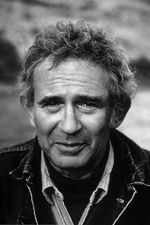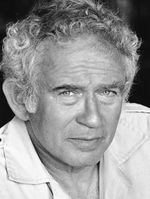83.13: Difference between revisions
Appearance
Created page. |
m Changed gallery. |
||
| Line 4: | Line 4: | ||
{{cquote|I never take Tom Wolfe seriously when he talks about the New Journalism as a higher form than the novel, because finally in the New Journalism your plot is handed to you, and once it is, you can concentrate on the writing. Plot is what drives me up the wall. The choices your characters have, the wrong choices they can make. I’ve had that experience in ''The Deer Park''<ref>[[55.4]]</ref> and in ''Barbary Shore'',<ref>[[51.1]]</ref> and it frightened me for life.|author=Mailer|source=83.13}} | {{cquote|I never take Tom Wolfe seriously when he talks about the New Journalism as a higher form than the novel, because finally in the New Journalism your plot is handed to you, and once it is, you can concentrate on the writing. Plot is what drives me up the wall. The choices your characters have, the wrong choices they can make. I’ve had that experience in ''The Deer Park''<ref>[[55.4]]</ref> and in ''Barbary Shore'',<ref>[[51.1]]</ref> and it frightened me for life.|author=Mailer|source=83.13}} | ||
<gallery> | |||
File:83-13.jpg | |||
</gallery> | |||
===Notes=== | ===Notes=== | ||
Latest revision as of 14:01, 24 December 2018
“Mailer Goes Egyptian.” Article-interview by Marie Brenner. New York, 28 March, 28–38. Long, sympathetic portrait of Mailer replete with revealing comments garnered during visits to his Brooklyn Heights apartment. His wife, Norris Church Mailer, is also quoted. Topics covered at length: Ancient Evenings (83.18); his parents (“my father was an elegant, impoverished figure out of Chekov”); his Jewishness; an extended description of how he met Norris; other writers, including Lillian Ross, William Styron, John Updike and Ernest Hemingway; the 1981–1982 Jack Abbott affair; and many remarks on the challenges of being a professional writer.
| “ | I never take Tom Wolfe seriously when he talks about the New Journalism as a higher form than the novel, because finally in the New Journalism your plot is handed to you, and once it is, you can concentrate on the writing. Plot is what drives me up the wall. The choices your characters have, the wrong choices they can make. I’ve had that experience in The Deer Park[1] and in Barbary Shore,[2] and it frightened me for life. | ” |
| — Mailer, 83.13 | ||




